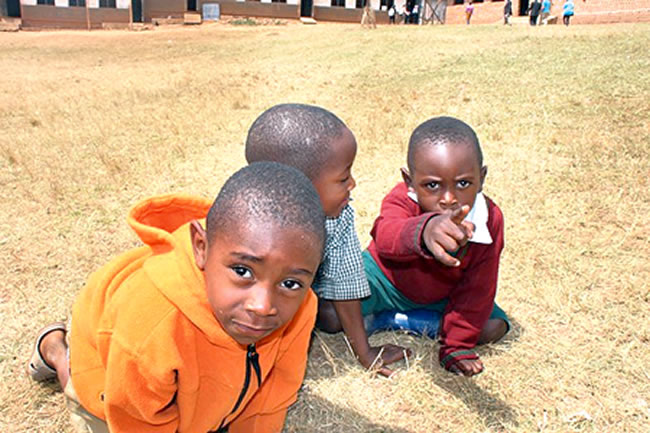BY Sade Oguntola
Most of the women learned about their HIV diagnosis during pregnancy when they attended their antenatal care. At the time of their HIV diagnosis, the mothers were anxious about the fear of having transmitted HIV to their babies. Throughout pregnancy, the women lived with worry and uncertainty about the future of their babies.
The good news is that children living with HIV, just like adults living with HIV, are living longer, healthier lives with improved treatments. But adequate care for all children, regardless of their mother’s HIV status, need to start during pregnancy.
“Essentially, healthy lives start in pregnancy when the mother enrolls in PMTCT, a major part of antenatal care, to be able to access HIV medicines (called antiretroviral therapy or ART) to prevent the transmission of the virus to the unborn child,” Dr Olufemi Adeyemi, Health Specialist, UNICEF Lagos Office, said.
For children infected with HIV from birth, the risk of infection is much higher. In the early stages of life, when the immune system is not yet fully developed, HIV-infected children have a higher risk of illness and death than healthy children.
Dr Adeyemi said that with full adherence to HIV medicines, the risk of a mother living with HIV passing the virus to her child can be reduced to extremely negligible—almost zero percent—during pregnancy, delivery, and breastfeeding.
Also, it is mandatory that children of women living with HIV are given at-birth medications to be doubly sure that the virus does not get to them and also tested for the virus within the first two months of life, what is called early infant diagnosis.
The health expert, however, said a child that is found to have HIV after all the initial steps taken by the mother will require HIV medicines for life in a bid to ensure that the child’s viral load is suppressed to an undetectable level.
HIV is somewhat different in children than in adults. Children living with HIV normally have much higher CD4 cell counts than adults living with HIV, but they may also have higher viral loads (the amount of HIV in the blood).
In addition, children living with HIV who are not taking HIV drugs are more likely to become sick with many opportunistic infections, be small for their age, and may not grow at the same rate as HIV-negative children.
Dr Adeyemi stated that it is important that children, regardless of their HIV status, be fully vaccinated and have proper nutrition to build their immunity and make them strong and healthy.
“An HIV-positive mother because she is on HIV medications, can and should breastfeed exclusively for the first six months of life, and keep to it beyond infancy. The feeding is supported with nutritious family foods from the age of 6 months.
“Also essential is living in a clean environment and making sure that the child is seen by appropriate medical personnel whenever there is any illness.
“As far as children are concerned, whatever it may be, HIV, measles, diarrhoea, or even malnutrition, our aim is that every child survives and attains their full potential in life.
“It is very painful that the same child that you had spent so much resources on to be born HIV-free now comes down and dies because of pneumonia. So, we are looking at a child as a total package.”
Children living with HIV are immunised for most diseases in the same way as HIV-negative children. But it is important that children living with HIV receive these vaccines when their CD4 cells are high enough.
Moreover, the Project Manager for the Oyo State Agency for the Control of AIDS (OYSACA), Dr Kayode Ogunkunle, said that a child who is living with HIV or has a mother who is living with HIV needs to attend the infant welfare clinic, where the growth and development of the child will be monitored.
“If there is any ailment, they shouldn’t do self-treatment but rather allow the child to be properly assessed and treated by medical personnel.
“The clinic appointments should be followed and attended so that they can be checked on a regular basis. These check-ups will include basic routine tests to monitor their blood level, blood count, CD4 count, and viral load to know if the HIV medicines they are given are working.”
In addition, Dr Ogunkunle said a mother who is living with HIV and nursing a child also requires regular hand washing, maintenance of environmental hygiene, teaching the child hand washing, and letting the child sleep under insecticidal-treated nets as part of measures to cut down on the chances of any infection.
Oyo State Coordinator, the Network of People Living With HIV and AIDS in Nigeria (NEPWHAN), Mr Faith Olawale, said it is also important that mothers living with HIV remember that their children are their future and keep them away from sharp and personal items they use for their body care, such as toothbrushes, razor blades, hair-do instruments, and other items that have the possibility of having blood contamination to prevent them from also getting infected.
He asked that they teach children not to share objects with others outside and refrain from any fight or rough play that will leave them in contact with blood.
READ ALSO FROM NIGERIAN TRIBUNE
WATCH TOP VIDEOS FROM NIGERIAN TRIBUNE TV
- Let’s Talk About SELF-AWARENESS
- Is Your Confidence Mistaken for Pride? Let’s talk about it
- Is Etiquette About Perfection…Or Just Not Being Rude?
- Top Psychologist Reveal 3 Signs You’re Struggling With Imposter Syndrome
- Do You Pick Up Work-Related Calls at Midnight or Never? Let’s Talk About Boundaries







